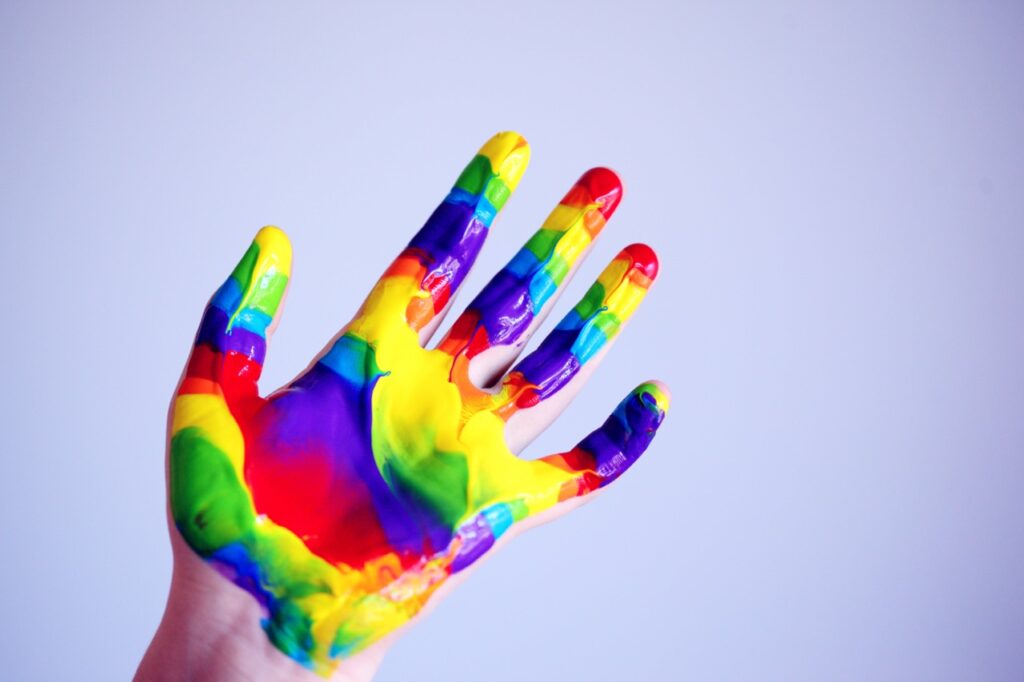Expressive Arts Therapy, Mental Well-Being
All About Expressive Arts Therapy
Expressive arts therapy is a transformative method that integrates the healing advantages of diverse creative forms such as visual arts, music, dance, writing, and theater. Individuals can use this therapy technique to tap into their creative potential and use it for self-expression, exploration, and healing.
But when is it appropriate to consider expressive arts therapy? The answer is simple: whenever you need emotional support, personal growth, or healing. Whether you are suffering from anxiety, sadness, trauma, or simply want to express yourself creatively, expressive arts therapy can provide a safe environment for inquiry and healing.
What is Expressive Arts Therapy?
In expressive arts therapy, therapists encourage clients to express themselves through various art forms. It acknowledges that the creative process can promote self-discovery, emotional healing, and personal development. Individuals can obtain insights and improve self-expression by engaging in various art modalities that tap into their creativity, intuition, and emotions.
Experienced expressive arts therapists typically supervise this therapeutic technique, blending many art forms, including painting, drawing, sculpting, music, dance, writing, and drama, to help patients explore and express their thoughts, feelings, and experiences. The emphasis is not on making a masterpiece but on the process of creation and the therapeutic advantages that it brings.

Understanding the Benefits of Expressive Arts Therapy
Individuals seeking emotional support, personal growth, or healing can benefit from expressive arts therapy. Here are some of the primary benefits of participating in this type of therapy:
- Enhanced Self-Expression: Expressive arts therapy allows people to express themselves freely without criticism. Different art forms can help people express tough thoughts, feelings, and experiences.
- Emotional Healing: Art may evoke profound emotions and heal. The creative process helps people release and recover from unresolved emotions, traumas, and challenging experiences.
- Self-Discovery and Personal Growth: Expressive arts therapy can help people understand themselves, their feelings, and their experiences. It can expose buried stories, new views, and self-awareness.
- Stress Reduction and Relaxation: Art may relax, reduce tension, and improve well-being. It can relieve tension and anxiety and be self-care.
- Enhanced Communication Skills: Expressive arts therapy is an alternative to talk therapy for people who struggle to communicate their emotions. Self-expression through art can help people overcome language difficulties and communicate more naturally.
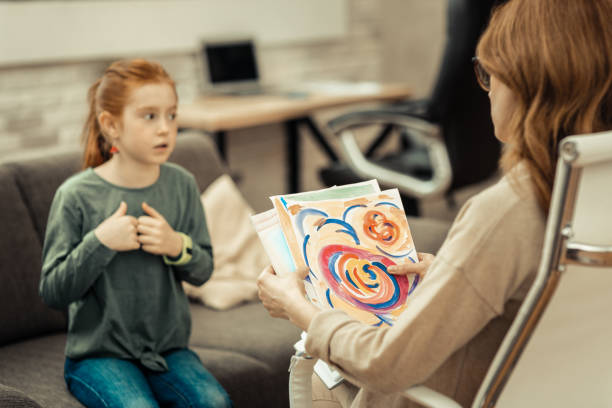
Research and Studies on Expressive Arts Therapy
An increasing amount of research and studies supports the efficacy of expressive arts therapy. According to research, participating in this kind of therapy can result in considerable gains in a variety of areas, including emotional well-being, personal growth, and quality of life.
According to a study published in the Journal of the American Art Therapy Association, this kind of therapy can be useful in lowering anxiety and depression symptoms. Individuals who engaged in expressive arts therapy reported lower levels of anxiety and depression as well as greater general well-being when compared to those who did not participate in this type of therapy, according to the researchers.
Another study, done by University of California, Berkeley researchers, discovered that this kind of therapy can help people process and heal from trauma. Individuals who participated in expressive arts therapy had a reduction in trauma-related symptoms as well as an improvement in self-compassion and self-esteem, according to the study.
These and other research emphasize the therapeutic benefits of expressive arts therapy, as well as its ability to promote healing, personal growth, and emotional well-being.
How Expressive Arts Therapy Can Be Integrated into Traditional Therapy
Expressive arts therapy can be utilized as a stand-alone therapeutic strategy or as part of a larger treatment plan. Many therapists understand the importance of incorporating art modalities into their practice to enrich the therapeutic process and provide additional channels for self-expression.
Therapists can build a more holistic and thorough approach to treatment by integrating expressive arts therapy with traditional talk therapy. Integrating creative forms can help people access deeper emotions, find subconscious patterns, and gain fresh ideas that might otherwise be difficult to obtain through verbal communication alone.
A therapist, for example, might employ visual arts to help a client explore and express their feelings, music to help with relaxation and emotional release, or writing to help a client journal and reflect on their experiences. The individual’s preferences, therapeutic goals, and the therapist’s expertise will determine the specific modalities employed.
Integrating expressive arts therapy into traditional therapy can offer a more dynamic and multifaceted approach to healing and personal growth.
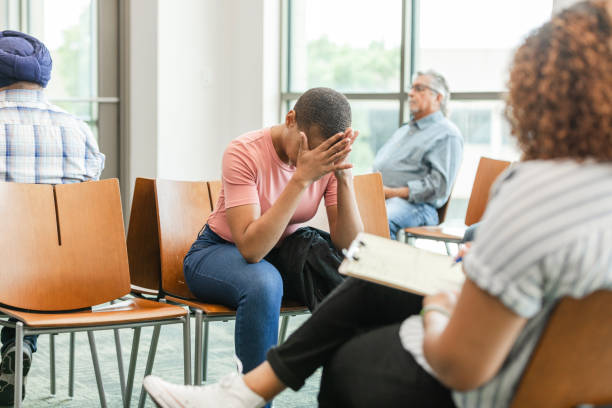
When is Expressive Arts Therapy Recommended?
Expressive arts therapy is indicated in a variety of scenarios and circumstances when people need emotional support, personal growth, or healing. Here are some frequent situations in which this kind of therapy may be very beneficial:
- Dealing with Trauma: It can be useful in assisting people to process and heal from traumatic situations. Individuals can explore and express their feelings through the creative process in a safe and supportive atmosphere, resulting in emotional release and healing.
- Managing Anxiety and Depression: Individuals who participate in this kind of therapy can reduce their symptoms of anxiety and depression. Art can promote relaxation, stress reduction, and emotional well-being, providing a healthy outlet for dealing with these situations.
- Exploring Identity and Self-Discovery: It can help people explore their identity, values, and beliefs. Individuals can get insights into their genuine selves, unearth hidden narratives, and traverse their unique journeys of self-discovery and personal improvement by engaging in various creative genres.
- Enhancing Relationship Skills: Individuals wishing to improve their relationship skills may benefit from this kind of therapy. Individuals can examine their emotions, communication patterns, and relationship dynamics through creative methods, leading to better self-awareness and improved interpersonal connections.
- Seeking Personal Growth and Empowerment: It can be an effective instrument for personal development and empowerment. Individuals can overcome problems, develop resilience, and tap into their inner talents and resources by engaging in the creative process.
Finally, expressive arts therapy is indicated if a person requires emotional support, personal growth, or healing. It is a versatile and adaptable therapy method that can be adjusted to each individual’s specific requirements and goals.

Expressive Arts Therapy for Different Age Groups
Individuals of all ages, from children to the elderly, can benefit from expressive arts therapy. Adjusting the creative process to each age group’s developmental requirements and talents allows individuals to engage in art genres that speak to them.
Expressive arts therapy can provide a safe and developmentally appropriate outlet for children’s self-expression and emotional management. Children can process their emotions, acquire coping skills, and improve their self-esteem and social skills through art, play, and creative activities.
This kind of therapy can help teenagers and young adults explore their identities, express themselves, and grow personally. It can assist children in navigating the difficulties of adolescence and developing a sense of self and purpose.
Adults can benefit from this kind of therapy for self-reflection, stress reduction, and personal growth. It can be a creative outlet for exploring emotions, dealing with life transitions, and improving overall well-being.
Expressive arts therapy can improve cognitive stimulation, emotional well-being, and social interaction in older persons. Art can help older people maintain a sense of purpose, minimize feelings of isolation, and improve their quality of life.
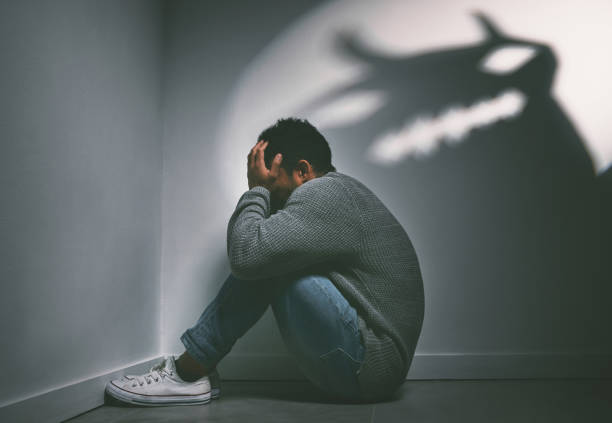
Expressive Arts Therapy for Specific Mental Health Conditions
Expressive arts therapy can be very effective for people suffering from various mental illnesses. While it is not a replacement for standard types of therapy or medication, it can be used to supplement treatment. Here are a couple of such examples:
- Post-Traumatic Stress Disorder (PTSD): It can assist people suffering from PTSD in processing and healing from traumatic situations. Individuals can express and release feelings related to their trauma through creative forms, as well as build coping techniques to manage symptoms.
- Anxiety Disorders: Individuals suffering from anxiety disorders can benefit from therapy to help them manage their symptoms and relax. Making art can be used as a mindfulness exercise, allowing people to focus on the present moment and reduce worry.
- Depression: Individuals suffering from depression can benefit from it as a form of self-expression, emotional release, and personal growth. Individuals can explore and express their emotions via art, which can help ease feelings of despair and hopelessness.
- Eating Disorders: It can help people with eating problems by giving them a nonverbal outlet for self-expression and discovery. Individuals can use art to convey their emotions, body image issues, and underlying issues related to their eating disorder.
- Substance Abuse: It can help people recover from substance misuse by giving them a creative avenue for self-expression, emotional healing, and personal growth. Individuals can use art genres to examine their emotions, triggers, and coping methods in a safe and supportive atmosphere.
Always carry out under the supervision of a skilled and qualified therapist who specializes in this technique.
Finding an Expressive Arts Therapist
It is critical to select a trained practitioner with the knowledge and expertise to provide effective and ethical therapy while looking for an expressive arts therapist. Here are some suggestions for finding an expressive arts therapist:
- Research: Conduct an online search to identify therapists who specialize in this kind of therapy in your region. To learn more about their qualifications and areas of specialization, read their profiles, websites, and client testimonials.
- Credentials: Look for certified mental health providers who have further training or certification in this kind of therapy. This ensures that they have the skills and information required to offer effective treatment.
- Interview: Set up an appointment or phone conversation with possible therapists to discuss their approach, experience, and how they incorporate it into their practice. This will assist you in determining whether they are a good fit for your needs and ambitions.
- Referrals: Request recommendations from reputable friends, family members, or healthcare professionals who have used this therapy. They may be able to refer you to therapists who have assisted them or others.
- Compatibility: Trust your intuition and choose a therapist with whom you feel comfortable and safe. Building a strong therapeutic relationship is essential for the success of arts therapy.
Remember that while it may take some time to find the proper therapist, the work is well worth it to guarantee you receive the best therapy available.
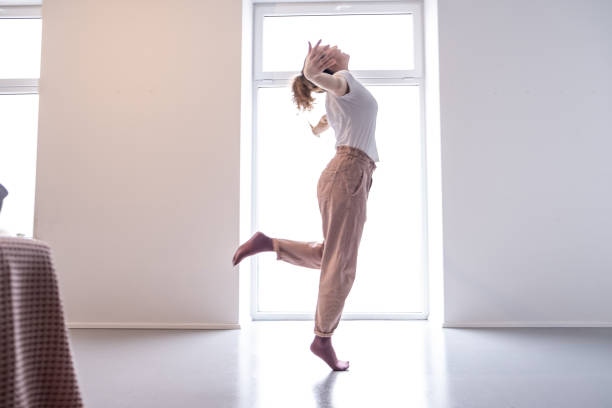
Expressive Arts Therapy Exercises and Techniques
Expressive arts involves a wide range of activities and approaches that can be adjusted to each individual’s specific requirements and preferences. Here are some exercises:
- Visual Art: Painting, drawing, and collage, for example, can help people express their feelings, explore their inner world, and obtain insights into their experiences.
- Music: Individuals can use music as a therapeutic technique by singing, playing instruments, or listening to music to induce relaxation, emotional release, and self-expression.
- Dance and Movement: Individuals can connect with their bodies through dance and movement activities, express feelings nonverbally, and enhance physical and emotional well-being.
- Writing and Poetry: Writing activities, journaling, or poetry can help with self-reflection, investigation, and creative expression.
- Drama and Theater: Drama and theater activities can help people experiment with diverse roles, emotions, and narratives, while also giving a creative avenue for self-expression and personal growth.
These are only a few exercises in this therapy. A skilled expressive arts therapist will customize the activities to your specific needs and goals.
Conclusion
Expressive arts therapy can help you heal from anxiety, despair, trauma, or just to be creative. It helps nonverbal communication, subconscious awareness, and self-expression.
Participating in many art genres can help people unlock their creative potential, understand their emotions, and find new coping mechanisms. It can help recovery in all ages when paired with other therapies.
Choose a skilled expressive arts therapist if you wish to attempt it. They will guide you through the creative process, support you, and help you heal.

